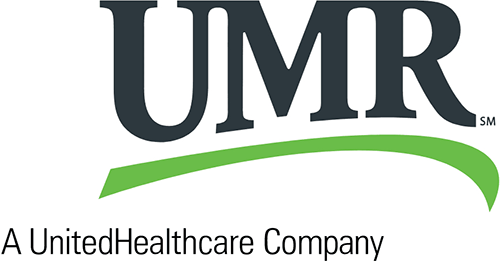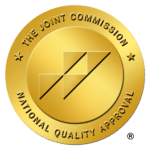
Firm Foundation Treatment Center partners with a local organization to connect individuals struggling with addiction with supportive housing services. Supportive housing provides a safe space where individuals can focus on maintaining their sobriety in a community of other individuals on similar journeys.
In a supportive housing setting, distractions are minimized, providing a safe and stable environment conducive to recovery. By removing the temptations and triggers often found in most living situations, clients can focus more effectively on their recovery process.
One of the most significant benefits of supportive housing is the accountability it provides. Residents are held to a higher standard of responsibility, with structured daily routines and regular check-ins. This helps reinforce positive behaviors and ensures that individuals remain committed to their treatment goals. By combining these elements, supportive housing creates an optimal environment for recovery, offering individuals the structure and support they need to successfully overcome substance abuse and rebuild their lives.

In the Partial Hospitalization Program at Firm Foundation Treatment Center, individuals meet most days of the week to participate in structured programming. Our PHP provides a high level of support through a wide range of therapies and group sessions.
This structure minimizes the risk of relapse and helps participants develop healthy routines and coping mechanisms. The program encourages a strong sense of community, as individuals can connect with others facing similar challenges, reducing the isolation that often accompanies mental health and substance use disorders.
Individual therapy sessions are pivotal, offering participants personalized attention and the opportunity to delve into the root causes of their conditions. Therapists employ evidence-based techniques such as Cognitive Behavioral Therapy (CBT) and Dialectical Behavior Therapy (DBT) to equip individuals with practical tools for managing their symptoms. Group therapy, on the other hand, fosters peer support and facilitates the sharing of experiences and strategies for overcoming challenges, enhancing the therapeutic experience through social interaction.
Psychoeducation is another critical component of the program, providing participants with valuable knowledge about their disorders, treatment options, and healthy lifestyle choices. This education empowers individuals to take an active role in their recovery, promoting informed decision-making and self-advocacy.
Medication management is closely monitored to ensure that any pharmaceutical treatments are effectively supporting the therapeutic process. Regular assessments help to adjust medications as needed, optimizing their efficacy and minimizing potential side effects.
By addressing both mental health and substance use issues concurrently, the Dual Diagnosis PHP delivers a more comprehensive and effective treatment experience. This integrated approach not only tackles the symptoms but also aims to heal the root causes, supporting a stronger and more sustainable recovery journey. With a focus on long-term well-being, the program equips individuals with the skills, knowledge, and support necessary to lead fulfilling lives free from the burdens of their disorders.
A distinctive feature of the Partial Hospitalization Program is its Christ-centered approach to treatment. This aspect integrates spiritual healing with clinical care, recognizing the importance of faith in the recovery journey for many participants. By incorporating Christian principles and values, the program provides an added layer of support that resonates with those who find strength and solace in their faith. Spiritual counseling, morning prayer, and faith-based group activities are integral components that complement therapeutic interventions, such as individual and group therapy. This holistic, faith-inclusive approach not only addresses mental health and substance use disorders but also nurtures the spiritual well-being of participants, promoting comprehensive and enduring recovery.

Individuals seeking intensive support on a more flexible schedule than a PHP can benefit from our IOP. This program meets several times a week to help individuals develop coping skills and relapse prevention techniques to maintain long-term recovery.
The program typically includes a combination of individual therapy, group therapy, and medication management, all administered by a team of experienced healthcare professionals. Patients partake in evidence-based therapeutic practices that may include cognitive-behavioral therapy (CBT), dialectical behavior therapy (DBT), and other specialized treatments tailored to individual needs.
The program is designed to equip patients with practical coping strategies and skills for managing their symptoms while promoting long-term recovery and well-being. Regular assessments and personalized treatment plans ensure that each patient’s unique needs are met, providing a pathway to stability and improved mental health. Family involvement and support are also encouraged, recognizing the integral role that loved ones play in the recovery process.
Through the Intensive Outpatient Hospitalization Program, Firm Foundation Treatment Center commits to delivering patient-centered care, fostering an environment where individuals can achieve their therapeutic goals and enhance their quality of life.
An integral part of the Intensive Outpatient Hospitalization Program at Firm Foundation Treatment Center is its Christ-centered component, which offers spiritual support alongside clinical treatment. This aspect of the program appeals to individuals seeking or willing to incorporate Christian faith into their recovery journey. By integrating prayer, scripture readings, and faith-based counseling, the program provides a holistic approach that addresses both the spiritual and psychological well-being of patients.
The Christ-centered component encourages clients to draw strength and inspiration from their faith, which can be a powerful source of comfort and motivation during challenging times. The combination of spiritual support and evidence-based therapies creates a nurturing environment where patients can explore their beliefs and find deeper meaning and purpose in their recovery. This approach not only helps in managing symptoms but also fosters a sense of hope and resilience, guiding clients towards a more fulfilling and balanced life.

Our Outpatient Program provides a step down for clients who are transitioning from completing a higher level of care at Firm Foundation Treatment Center. This program is our most flexible treatment option, offering a Christ-centered approach to maintaining sobriety while navigating life in early recovery.
While IOP and PHP provide more intensive, short-term care, our program fosters ongoing recovery by combining clinical treatments with spiritual guidance. By embedding Christian values and teachings, we provide a supportive community that encourages personal growth, accountability, and hope. This holistic approach not only addresses the physical and mental aspects of addiction but also nurtures the spiritual well-being essential for sustained recovery.

At Firm Foundation Treatment Center, we understand that addiction recovery is a lifelong journey. Our aftercare support services aim to set you up for long-term success. Our team will work with you to connect you with community resources for sustained recovery.
Depending on your individual needs, we will connect you with a wide array of resources within the community to support your sustained recovery, mental health, and spiritual growth. Our network includes:
Before you leave our facility, we work closely with you to develop a personalized aftercare plan that addresses your unique needs and goals. This plan is designed to equip you with the tools and resources necessary for continued success in your recovery journey. Our aftercare services are not just about providing resources but also about ensuring that you feel supported and empowered as you transition back into everyday life. We are constantly evolving our programs to better serve you and help you stay on the path to recovery.
Together, we can strive to rebuild your mental health through therapy.
"*" indicates required fields
This site is protected by reCAPTCHA Enterprise and the Google Privacy Policy and Terms of Service apply.







Firm Foundation Treatment Center’s goal is to help others better their lives from the destructive nature of substance use disorders and mental health issues through an evidence-based, Christ-centered approach. Firm Foundation Treatment Center is a Christ-centered substance abuse program developed and focused specifically for men.
